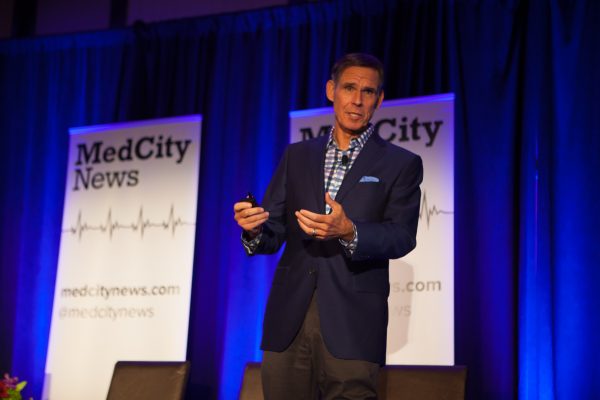
Preparing for a tech-enabled future is top of mind for health systems around the world as healthcare costs continue to rise, populations continue to age and medicine moves from episodic care to long-term management of chronic conditions.
As part of England’s National Health Service strategic efforts, the agency commissioned cardiologist and digital health researcher and evangelist Eric Topol to write a report about how cutting edge technology like genomics, AI and robotics will change medicine and how to build the clinical workforce that is able to harness these new tools for better patient outcomes outcomes.
“We are at a unique juncture in the history of medicine, with the convergence of genomics, biosensors, the electronic patient record and smartphone apps, all superimposed on a digital infrastructure, with artificial intelligence to make sense of the overwhelming amount of data created,” Topol writes in the report’s intro.
The report predicts this type of innovation will shift healthcare toward both more centralized and highly specialized care and more diffuse and less specialized care for the majority of conditions and workforce training will need to be adapted to fit in with that new structure.
Topol’s report posits a more individualized, patient-centered system driven by a population empowered by personal genomic and health information. The corresponding use of AI to interpret that data and provide clinical support tools could lessen burnout and build deeper and trusting relationships between patients and their healthcare providers.
Important in enabling this future is having sufficient skill around data provenance, curation and governance, as well as expertise in the ethical considerations necessary to combat historical bias and reinforcing existing inequalities.

A Deep-dive Into Specialty Pharma
A specialty drug is a class of prescription medications used to treat complex, chronic or rare medical conditions. Although this classification was originally intended to define the treatment of rare, also termed “orphan” diseases, affecting fewer than 200,000 people in the US, more recently, specialty drugs have emerged as the cornerstone of treatment for chronic and complex diseases such as cancer, autoimmune conditions, diabetes, hepatitis C, and HIV/AIDS.
Staffers and clinicians will also need to be trained to understand issues around data validity and accuracy as more clinical decision making is guided by the use of that data. The report mentions accredited continuous professional development and flexible on-going training as central to helping to assess emerging technologies.
One key industry need will be for clinical bioinformaticians and the report recommends increased support for that specific career pathway. Other educational improvements include general education about to genomics literacy and data analytics as part of core training for healthcare professionals and in undergraduate healthcare curriculum.
Regulatory considerations are also necessary to build frameworks for using genomic data in a way that protects patient confidentiality and provides evidence-based guarantees for the safety of emerging technologies.
Patient input is also key in helping to develop AI-based technologies that fit with their needs and preferences and the report recommends a “fully integrated, digitised and remotely accessible health and care record” be developed and made available over the next decade.
Repeatedly, the report underscored the necessity for preparing for a future that is rapidly approaching.
“The greatest challenge is the culture shift in learning and innovation, with a willingness to embrace technology for system-wide improvement,” the report reads.
“Recognizing that there will be a five-to-seven year time lag to full adoption, there is now a window of opportunity in which to strengthen the infrastructure,
upskill the workforce and catalyse the transformation. There is no time to waste.”
Photo: Ivan Hundric ENGAGE 2016 San Diego












